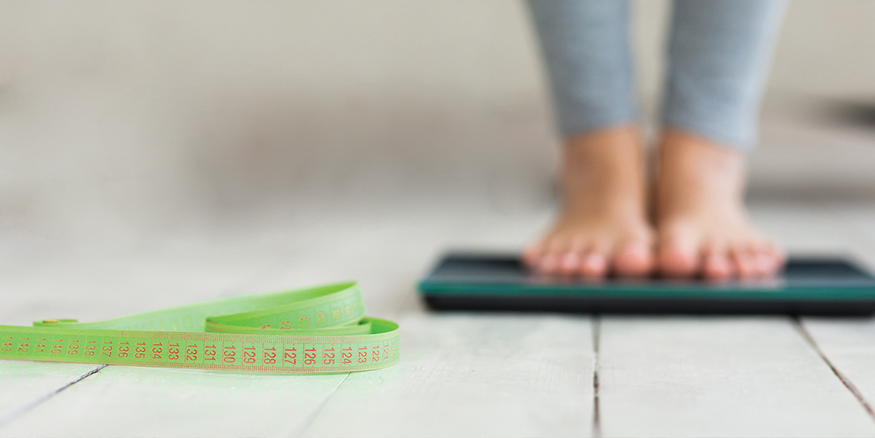The Weight Gain Battle
From conception, a deep-seated self-preservation goal of your biology is to grow and acquire body stores, including energy in the form of fat. Obesity is a complex disease in which abnormal or excess body fat impairs health.1 There is a clear brain-gut connection in obesity. Once you gain weight, your body strives to maintain that weight. When you lose weight, your body tries to bring you bring back to that higher weight by increasing your appetite and slowing down your metabolism. Experts agree that this stems back to a time when we had to work hard for food so, when the body had abundance, it happily stored the fat for future potential lack. This is your brain helping you survive; for ancient humans, defending against weight loss was defending against death.
Temperature Analogy2
Imagine that weight gain to your body is like a room in which a broken thermostat controls the heat, and you cannot turn it down to a lower temperature once you turn it up. During a cold winter, you turn the thermostat up to 25°C to stay warm. When summer comes along you try turning down the thermostat, but it stays hot. To cool down the room, you turn on several fans and an air conditioner. Weight setpoint works similarly.
If you gain weight during a stressful time in your life, or as a medication side effect, during a pregnancy, or for any other number of reasons, then your body will always try to maintain that new higher weight. Even if you successfully lose weight and get back to the weight you were before, your body feels stressed because it is missing the newly acquired weight. You are fighting against a new body setpoint.
Any measure to lose weight, whether you are underweight, ideal weight, or overweight, will have to fight the biochemistry of the brain. Other lifestyle and environmental factors, such as medication benefits, medication side effects, accessibility/affordability of nutritious foods, work conditions, physical activities, etc., add to this challenge. All your subsequent efforts must go toward keeping that weight off, which can be exhausting.
Mitigating Strategies
Losing weight is a complex process that needs a combination of interventions, which might include diet modification, exercise, behavioural therapy, medications, and/or surgery. It can be very difficult, but there are some things you can do to make it easier. For example, two recent studies suggest that chewing longer and avoiding ultra-processed foods can be significantly helpful.
In a 2022 study,3 the authors demonstrated that chewing helps you burn more calories. Participants who chewed a tasteless, odourless gum for two 15-minute time intervals, five minutes apart, elevated their metabolic rate by 10-15%. To increase energy expenditure, take time to chew your food thoroughly.
In a 2019 study,4 adults were offered ultra-processed versus unprocessed diets. The ultra-processed diet caused an increased intake of ~500 calories per day and weight gain despite participants in both groups being offered food with the same number of calories, sugar, fat, sodium, fibre, and macronutrients. It’s important to focus on the types of food you eat, instead of just the calories, because unprocessed foods can help you feel full and satiated on fewer calories than ultra-processed food.
Outlook
It is unhelpful to tell people to “just lose weight”. Obesity, as with every chronic disease, requires ongoing, regular, sustained intervention, and treatments have greater success if they begin when you first become overweight.
First published in the Inside Tract® newsletter issue 223 – 2022
1. Wharton, S et al. Obesity in adults: a clinical practice guideline. CMAJ 2020 August 4;192:E875-91. https://www.cmaj.ca/content/cmaj/192/31/E875.full.pdf
2. Sharma, A. Why Obesity is a Chronic Disease. Obesity Canada. Connected Video Series 2020-10-24
3. van Casteren, A et al. The cost of chewing: The energetics and evolutionary significance of mastication in humans Science Advances. August 2022. Volume 8. Issue 33. https://www.science.org/doi/10.1126/sciadv.abn8351
4. Hall K. et al. Ultra-Processed Diets Cause Excess Calorie Intake and Weight Gain: An Inpatient Randomized Controlled Trial of Ad Libitum Food Intake. Cell Metabolism. July 2019. 30, 67–77 https://doi.org/10.1016/j.cmet.2019.05.008
Photo: © Prostock-studio | Bigstockphoto.com


